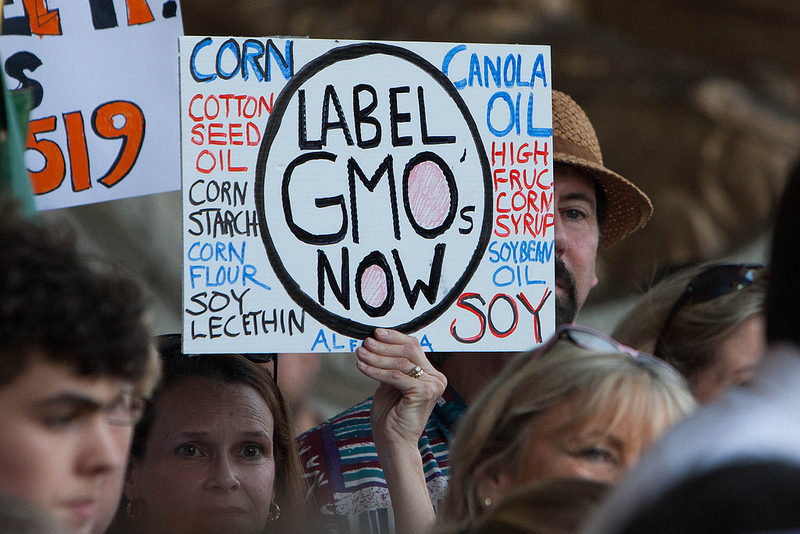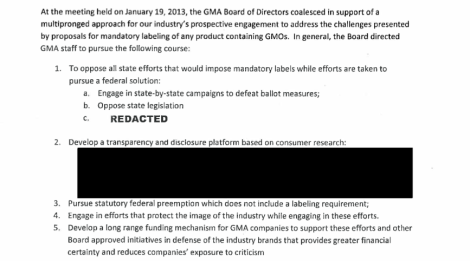Thanks to some canny sleuthing by public health lawyer Michele Simon, we now have a little window on the Grocery Manfacturers Association’s strategy on labeling genetically engineered food. That strategy boils down to five key points, which I’ll summarize as:
- Nope.
- No way.
- Never.
- Well, OK but, no.
- Go directly to No. 1.
Tom Philpott has highlighted the real five-part strategy, which you can read here.
You can see the actual documents here on Simon’s site. Simon got her hands on these memos by filing a public records request for court files, after the Washington state attorney general sued the GMA. She writes:
I had predicted a federal compromise, where industry would agree to a weak form of labeling in exchange for stripping state authority. But what industry wants instead is to stop state laws to require labeling, while not giving up anything in return. In their own words, the game plan is to “pursue statutory federal preemption which does not include a labeling requirement.”
For me, the lesson here is: beware the maybe-next-year argument. That goes something like this: “Labeling is OK, but this particular law is fatally flawed.” It’s an old standby of parents:
“Can we go to Yosemite this summer?”
“Uh, this summer is packed, but maybe next year.”
The maybe-next-year argument assuages risk-perception experts (and people like me), while indefinitely postponing any action.
Of course, that argument is sometimes right: Voter initiatives, especially, can have unintended consequences. Several smart people — like Dan Fagin, Ramez Naam, and Mark Lynas — made the case for labeling while opposing Washington’s initiative. But in this case, I had to respectfully disagree. After looking carefully at the letter of the law I was convinced that it would not cause the sky to fall.
The GMA also opposed the measure on the grounds that state rules were unrealistic. But a state labeling law could help trigger a federal law, which would pre-empt the patchwork of rules. And now we know that the GMA also opposes even the most gently worded federal labeling law.
In other words, for the big food industry, “maybe next year” really is just another way of saying “Nope. No way. Never.”




